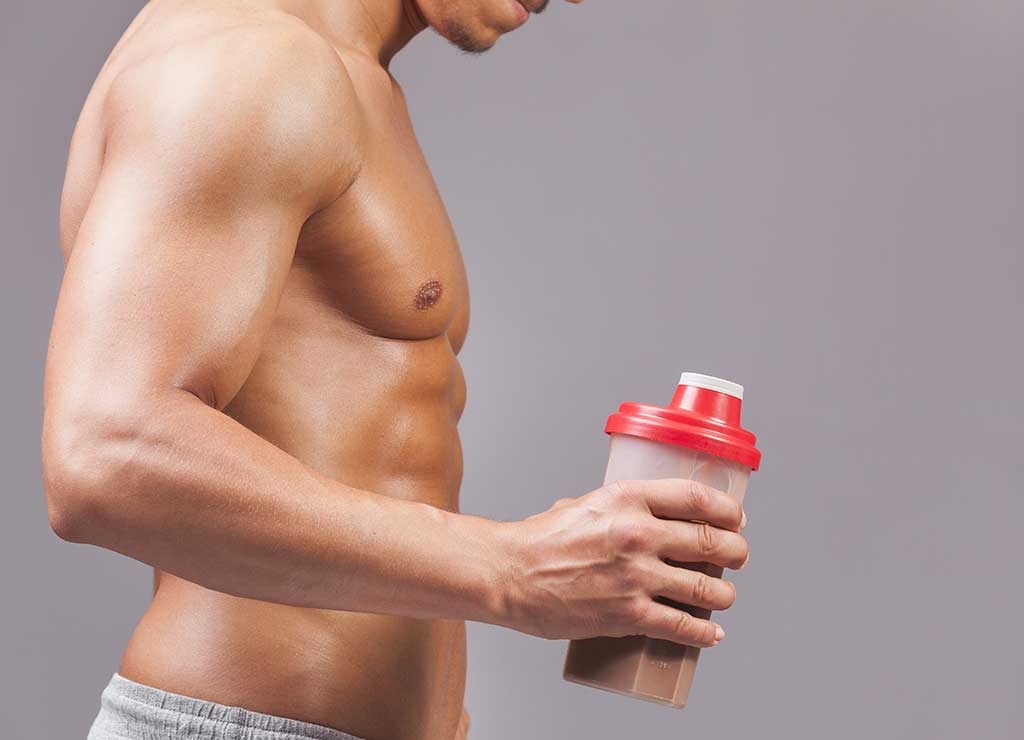The Scary Side Effect of Mixing Protein and Sugar

If you’ve ever guzzled fruit juice—or even worse, soda—with your protein-rich dinner, you may be undoing the gains you’ve worked so hard for at the gym. According to a new study in the journal BMC Nutrition, drinking a sugary beverage with a high-protein meal can spell out a slew of issues. “We found that about a third of the additional calories provided by the sugar-sweetened drinks were not expended, fat metabolism was reduced, and it took less energy to metabolize the meals. This decreased metabolic efficiency may ‘prime’ the body to store more fat,” explained Dr. Shanon Casperson, lead author of the study from USDA-Agricultural Research Service Grand Forks Human Nutrition Research Center.
To come to this finding, researchers recruited 27 healthy-weight male and female adults and fed them breakfast and lunch consisting of 15 percent protein on one day and, on another day, gave them breakfast and lunch consisting of 30 percent protein. The participants imbibed a sugary drink with one of the meals and a non sugar-sweetened beverage with the other meal.
The researchers discovered that adding a sugar-sweetened drink to the meal decreased the breakdown of fat after consumption by eight percent. “Our findings suggest that having a sugar-sweetened drink with a meal impacts both sides of the energy balance equation. On the intake side, the additional energy from the drink did not make people feel more sated. On the expenditure side, the additional calories were not expended and fat oxidation was reduced. The results provide further insight into the potential role of sugar-sweetened drinks—the largest single source of sugar in the American diet—in weight gain and obesity,” Dr. Casperson said. Although the study didn’t cover protein powders, we can’t help but wonder whether a high-sugar powder would cancel out the protein’s benefits. To tread on the safe side, opt for an Eat This!-approved pick in our report on The Best And Worst Protein Powders.








